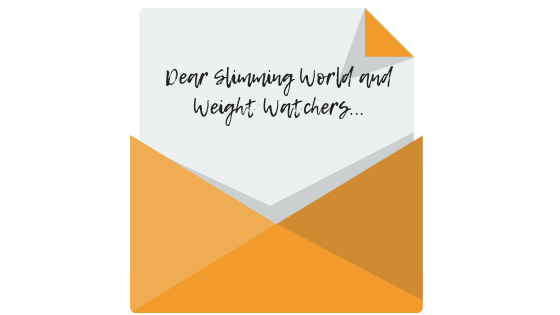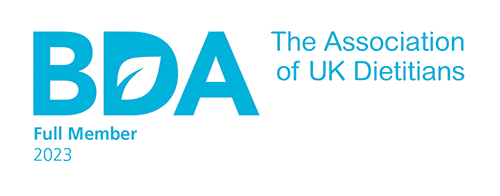10th October 2018
Dear Slimming World and Weight Watchers,
It is World Obesity Day on the 11th October 2018. This year’s theme is Weight Stigma, which is widespread and well known to be destructive to mental and physical wellbeing (1).
Weight self-stigma is also common, and occurs when people blame themselves for their inability to lose weight and keep it off (2). Current evidence suggests your organisations and weight loss methods contribute to this problem.
I can accept that there are people who have lost impressive amounts of weight using your methods, some of which have probably kept it off. I can also accept that most people will lose weight initially. But weight loss that is regained is a fact for the majority.
So surely we need to question the method, not allow the individual to believe that they are at fault?
Self blame, or weight self-stigma, will be reduced with public honesty. The few published studies about the “effectiveness” of commercial weight loss groups circulate very narrowly around a few interested health professionals. But the people that need to know, the public, are not party to this information, and invest week after week, with no objective idea about what they will achieve in return.
So let me give a brief overview of the evidence:
- People who want to lose weight have high weight loss expectations of more than 10% (3)
- Weight losses of 6% or less are considered ‘disappointing’ (3)
- Weight related risks to health can be reduced with weight losses of more than 5% (provided weight stays off) (4)
- The average weight loss achieved by attending your groups is 3% (4)
- 12 weeks attendance at Slimming World led to a greater weight loss than simply being given brief advice. That greater weight loss was on average 1.43kg, or 3lbs, after 1 year. And 75% of the participants lost less than 5% weight (5)
- 52 weeks attendance at Weight Watchers led to a greater weight loss than brief advice and self-help material. That greater weight loss was on average 1.99kg, or 4 lbs, after 2 years. And 61% lost less than 5% weight (6)
In short, the weight losses achieved by attendance at your groups fails to achieve health benefit for the majority, and are considered personally disappointing.
And people wrongly blame themselves for this. The resulting weight self stigma (2),(3) leads to further disordered eating behaviours (7) and drives weight gain (1), so, for many, your weight loss methods are making the problem worse.
Unintended consequence? Probably. But a consequence you have a social responsibility not to ignore.
And so to your methods.
The common short term weight loss ‘wins’ demonstrate that your organisations help people hit the target. But the subsequent weight regain proves you miss the point.
I know your programmes are based around the science of ‘energy balance’ and ‘calorie deficit’, but by assigning ‘syns’ and ‘points’ to foods, you have missed the point again.
Your programmes fail so many people because while food and nutrition can be reduced to science, eating is not, and never will be, a science. Eating well is an art.
So you can teach people about ‘syns’ and ‘points’ ‘til the cows come home. You can foster dependence by over-emphasising the importance of the weekly weigh-in. But if people have no idea how to be independent in their food decisions or how to navigate the current food world, then how have you helped?
Medical ethics prioritise ‘first do no harm’. Wise words. You can help reduce the harm caused by weight self-stigma by being honest, with yourselves, but more importantly, with the public. Otherwise, it will appear that you are comfortable selling dreams while delivering disappointment.
Yours faithfully,





 Kate McCulla Nutrition
Kate McCulla Nutrition Kate McCulla Nutrition
Kate McCulla Nutrition